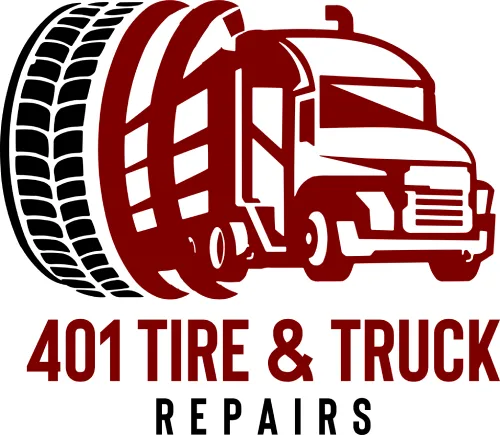At 401 Tire and Truck Repairs, we know that a healthy engine is the heartbeat of your vehicle. Whether you’re cruising through Brockville’s scenic routes or navigating the 401, engine diagnostics are crucial to ensure your ride remains smooth and reliable.
What Is Engine Diagnostics?
Engine diagnostics is the process of identifying and troubleshooting issues within your vehicle’s engine and related systems. Modern vehicles are equipped with sophisticated onboard computers that monitor various sensors and components. When something goes awry, these systems can trigger warning lights or store diagnostic trouble codes (DTCs) to help technicians pinpoint the problem.
The Comprehensive Engine Diagnostic Process
1. Customer Consultation
Every diagnostic session begins with a conversation. Our technicians at 401 Tire and Truck Repairs will ask you about any symptoms you’ve noticed—be it strange noises, warning lights, or performance issues. This information helps us understand the context and prioritize potential problems.
2. Visual and Physical Inspection
Before diving into electronic diagnostics, we perform a thorough visual inspection. This includes checking for:
- Fluid leaks
- Worn or damaged belts and hoses
- Loose or corroded connections
- Signs of overheating or wear
This step ensures that obvious issues are addressed before more in-depth testing.
3. Connecting to the OBD-II System
Most vehicles manufactured after 1996 are equipped with an On-Board Diagnostics II (OBD-II) system. By connecting a scan tool to the OBD-II port, we can retrieve stored DTCs and live data from various sensors. This data helps us understand how components like the engine control unit (ECU), sensors, and actuators are performing.
4. Data Analysis
Once the data is collected, our technicians analyze it to identify any irregularities. This might involve:
- Comparing sensor readings to manufacturer specifications
- Identifying patterns that suggest specific faults
- Assessing the performance of components like the fuel system, ignition system, and exhaust system
This step is crucial for pinpointing the root cause of the issue.
5. Component Testing
If the initial diagnostics point to a specific component, further testing is conducted. This might include:
- Compression tests to assess engine health
- Fuel pressure tests to evaluate fuel delivery
- Ignition system tests to ensure proper spark
- Exhaust gas analysis to check for emissions issues
These tests provide a deeper insight into the engine’s condition.
6. Repair Recommendations
Based on the findings, we’ll provide you with a detailed report outlining:
- Identified issues
- Recommended repairs or replacements
- Estimated costs and timeframes
At 401 Tire and Truck Repairs, we believe in transparency and will never proceed with repairs without your approval.
7. Post-Repair Testing
After repairs are completed, we conduct a test drive to ensure that the issue has been resolved and that the vehicle is operating optimally. We also clear any stored DTCs and perform a final scan to confirm that no new codes have appeared.
Why Regular Engine Diagnostics Matter
- Early Problem Detection: Catching issues early can prevent costly repairs down the road.
- Improved Performance: Addressing engine problems can enhance fuel efficiency and overall vehicle performance.
- Emissions Compliance: Regular diagnostics help ensure your vehicle meets environmental standards.
- Peace of Mind: Knowing your vehicle is in top condition provides confidence on the road.
Conclusion
At 401 Tire and Truck Repairs, we’re committed to providing comprehensive engine diagnostics to keep your vehicle running smoothly. Our experienced technicians use state-of-the-art equipment and a systematic approach to identify and resolve engine issues efficiently. Whether you’re experiencing a minor hiccup or a major malfunction, we’re here to help.

